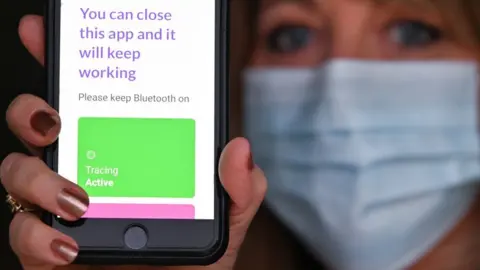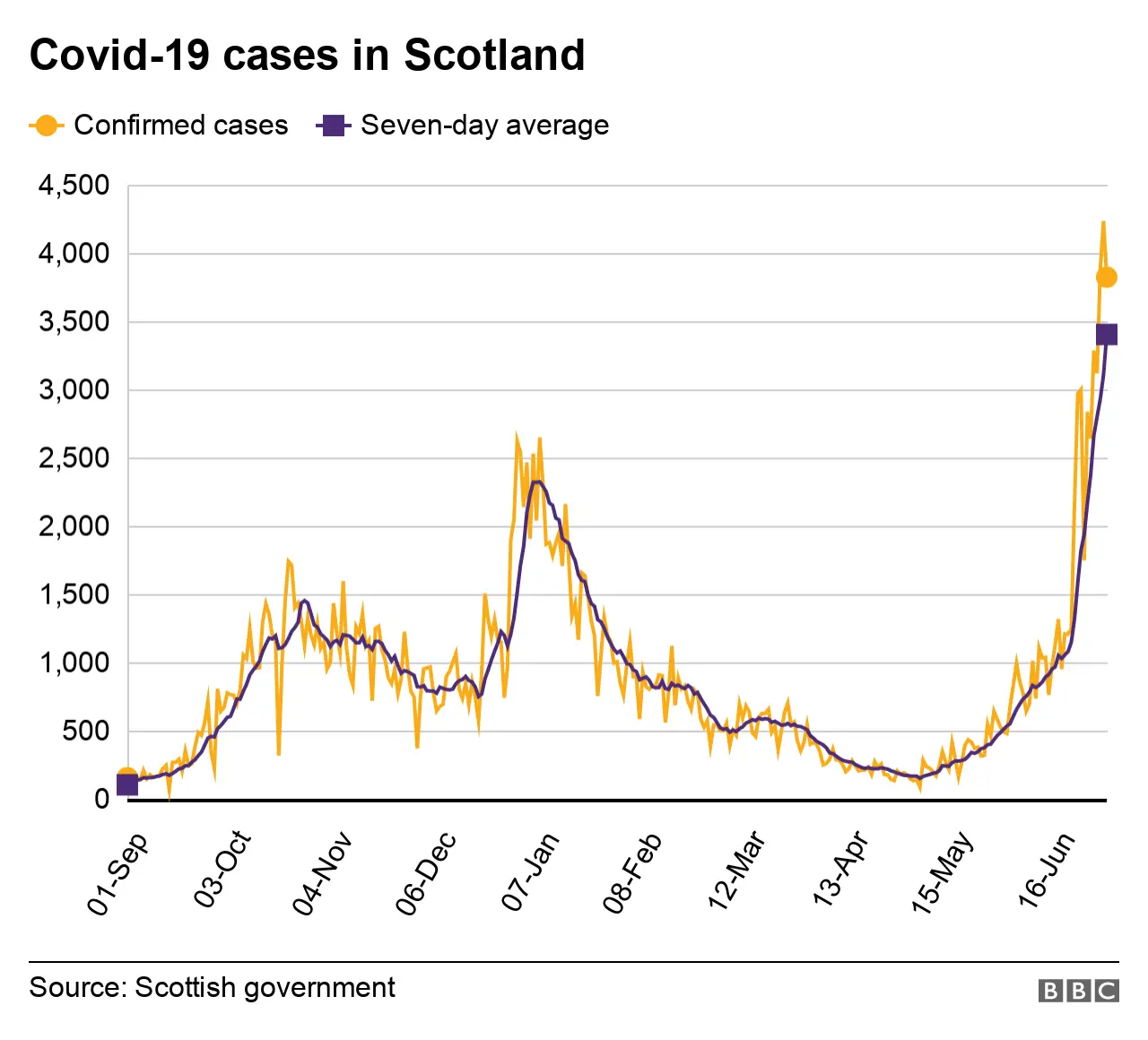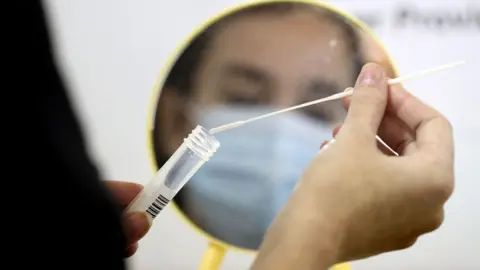Covid surge means health board 'cannot contact trace every case'
 PA Media
PA MediaA health board has warned that the surge in Covid cases means it will not be able to trace the contacts of everyone who tests positive.
NHS Grampian said it had recorded 322 positive cases in the past 24 hours.
This had led to a "dramatic increase" in the workload of its contact tracing teams.
And it said that they were "not currently in a position to contact trace every positive test that comes into the system".
The health board has asked people who test positive to give details of their contacts in an online form to reduce the number of phone calls being made by its teams.
It comes amid mounting concern over Scotland's contact tracing system, which opposition parties say is buckling under the pressure of rapidly increasing case numbers across the country.
There have been 23,822 new cases of the virus identified over the past seven day.
Figures for last week showed that just 29% of people who tested positive had spoken to a contact tracer within 24 hours of being logged by the Test and Protect system - by far the lowest on record.
First Minister Nicola Sturgeon has admitted that the service is under pressure, but insisted it was "coping well".
She told her Covid briefing on Friday: "It is still meeting the WHO (World Health Organisation) target of 80% of cases dealt with, contact tracing done and in quarantine within 72 hours."
Ms Sturgeon also said it was "common sense" for the public to "operate in a way that helps test and protect."
She added: "If you test positive and you know you have been in close contact with another individual, you don't have to wait for test and protect to tell them that, you can tell them that straight away."
The Scottish government is to make an additional £380m to health boards to help with costs arising from the pandemic, including the Test and Protect system.

Scotland recorded a further 3,823 new cases of the virus on Friday - down from the record high of 4,234 the previous day.
After someone has tested positive, their case is logged on the Test and Protect system and a contact tracer conducts a telephone interview to establish where they have been and who they have been in close contact with.
These contacts - people who the "index case" has been in close physical proximity to for long enough to potentially infect them - are then told to isolate and book a test of their own.
NHS Grampian's deputy director of public health, Chris Littlejohn, said it was now prioritising those individuals most at risk from Covid-19 for telephone calls.
Those at lower risk will receive a text message with further guidance.
Mr Littlejohn said: "If you don't complete the form, supplied with your positive result, our teams will have to call you.
"Identifying your own contacts - making sure to include those people you live with - allows our team to concentrate on the more complex cases.
"This is a sensible and practical approach to managing the huge volume of cases being seen across the country."
 PA Media
PA MediaScottish Labour health spokeswoman Jackie Baillie said contact tracing staff were "working tirelessly to keep on top of the growing number of cases, but the system simply cannot cope".
She added: "It did not come as a surprise to anyone that cases would increase as restrictions lift.
"The government's failure to prepare for this is a downright dereliction of duty.
"We urgently need to put the resources in place to make sure Test and Protect is able to cope and bring the spread of the virus under control."
Meanwhile, hospitality leaders have called for an overhaul of the system, claiming it is "crippling" the sector.
Scottish Hospitality Group (SHG) said the test and protect system was causing "delays and confusion" for businesses, and warned that a growing number were being forced to close.
SHG said the lag in test and protect teams coming back to businesses had forced operators to "weigh up the cost of closure versus risk of infection".
Spokesman Stephen Montgomery said: "As a system, it's severely testing and it's not necessarily protecting.
"Responsible operators, by nature of their trade, are opting to shut - but at a cost of £15,000 per average-sized business, with much-needed turnover being lost, this is not viable.
"Tragically, for smaller owners, it is pushing them even deeper into the red, and to the point of no return."
Ms Sturgeon said government officials would contact the Scottish Hospitality Group to understand its concerns and offer any advice and support.


